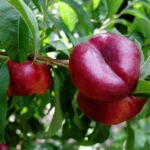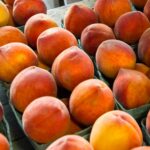Cherry industry must get quality right at the farm level, urges Aussie grower

A leading Australian cherry grower has called on the industry worldwide to lift quality from the very start of the supply chain, emphasizing that a "packing shed is not a hospital" where fruit can just be fixed up post-harvest.
Speaking at the Global Cherry Summit last week, Tim Jones of Wandin Valley Farms told attendees standards would need to be high and logistics improved for the international market to handle the increase in volume that's on its way.
"For me there has been an absolute strong message here for us, not just for our business but as an industry. We've heard the word ‘quality’ mentioned and we’ve heard the word ‘taste’," Jones said.
"I think as a farmer, as a cherry grower, we have to really listen to those things, because if you look at the Chinese market where it's more and more going online, the consumer is not going to get the chance to go and pick those cherries from a retail outlet.
"The first time they see those cherries is when they open that box and they look in there, and their expectations with cherries are very high."
Jones was part of a small Australian contingent at the conference, which also included representatives of major Tasmanian cherry producer-exporter Reid Fruits.
"I'm also a firm believer in getting things right at the farm. We have a fairly small packing facility in comparison to some of the big guys in the States or in Chile, but a packing shed is not a hospital and we can't fix up things in the packing shed," he said.
This recommendation is for all growers but will be of particular relevance to Chile, the world's top exporter and a country that is expected to double its volume within four or five years.
"It’s very very difficult if you’re not set up as an industry, in any country, to deliver good fresh produce generally," he said.
"But for cherries it is a different thing to grow and move, and get to the consumer in the right shape. We have to really look to the future how we’re going to handle them."
Wandin Valley Farms has orchards in northern Victoria as well as in southern Tasmania, a state that like Chile enjoys a fruit fly-free status. While there has been a recent outbreak in the state's north, the source has been found and there is a confidence in the industry that the pest will be eradicated.
Jones also gave a brief summary of Australia's unique growing conditions to attendees at the international event.
"Firstly it’s my pleasure to be here in Chile. It’s my first visit and I’ve met some superb people," he said.
"We’re farmers ourselves, and one thing I can see is that we all have very similar things in common."
But with regards to Australia, he highlighted most of the country's cherry production was in hot areas.
"We have two specific areas of production; one is based on the mainland of Australia and the other is based in Tasmania," he said.
"Those growing regions cross just slightly and the other thing we have which is quite different, which many people may not be aware of, is the Australian mainland has some nasty pests and diseases that stop us from supplying many areas around the world."
More specifically in the cherry industry, this means Queensland fruit fly in the eastern states and Mediterranean fruit fly in Western Australia.
"Whereas Tasmania, they are classed as a pest-free state and this pest freedom status is very valuable to them as it allows them to access many markets, where from the mainland we cannot access," he said.
"That is changing over time, as our industry develops much closer relationships with our government who then undertake various negotiations with other countries.
"Unfortunately, that takes a long process to negotiate new ways to trade, but as far as Australia goes, we’re very small in world market scale. We only produce 20,000 [metric] tons, which is very small in comparison to Chile or Washington or many places in and around Europe."
But he did however highlight Australia's benefits in the category due to "strong air freight capability" out of eastern Australia into Southeast Asian markets.
"Our focus is very much on freshness, and Australia is in a tremendous position because we have got fantastic growing conditions in our country," he said.
"We may have a very small population but we get a lot of sunlight and it’s very clean air, and we are capable of producing high quality cherries, also high quality grapes.
"We are quite well-known around the world for having sweet grapes and of a high quality, and the one thing we’re extremely focused on as an industry is, from our own industry's and companys’ perspectives, we are very focused on varietal choice."












































